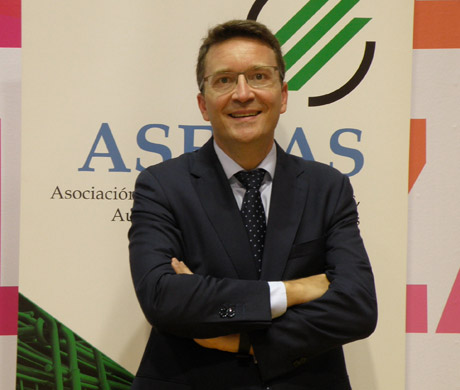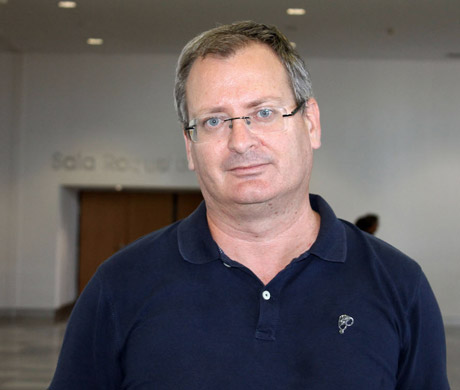Spanish Association of Agri-food Economy
The AEEA is a non-profit organization with more than 250 members and its mission is to promote and disseminate knowledge in the different areas of interest of the agri-food economy.
The main activities of the AEEA are the publication of the journal of Agricultural and Resource Economics, the organization of a biannual national congress, as well as other congresses, workshops, seminars, and technical and academic activities.
Currently, the AEEA has more than 250 professional members from the fields of interest of the agri-food economy from Academia (universities and research centers), Administration and Business. The General Assembly of members is the highest governing body of the AEEA, which meets at least once a year.
Objectives
The activities and actions of the AEEA are aimed at achieving the following goals:
- To represent agricultural economists in front of the Public Administration and other
- To stimulate and disseminate research in the field of agri-food e
- Maintain relations with public and private institutions and similar associations in Spain and other
- Promote the exchange of ideas and experiences, establishing relationships with all the actors in the agri-food
- Encourage research among young people, establishing awards and scholarships.
- Promote the exchange of ideas and experiences, establishing relationships with all the actors in the agri-food
- Encourage research among young people, establishing awards and scholarships.
Activities
- The journal of Agricultural and Resource Economics, created by the AEEA in 2001, is published in the Open Journal System every six months. Its objective is to provide a forum for the dissemination and discussion of scientific, technological and technical developments in the field of Agricultural and Resource Economics. View all volumes and issues.
- The agri-food economics congress is the main meeting, debate and communication point for researchers and professionals. So far, XII editions of the congress have been held, initially every three years and since 2007 every two years: Valencia (1995), Lleida (1998), Pamplona (2001), Santiago de Compostela (2004), Albacete (2007), Almería (2009), Madrid (2011), Castelldefels (2013), Córdoba (2015), Orihuela-Elche (2017) and Lugo (2019). The next edition will be held in Cartagena from September 1-3, 2021. Next AEEA congress.
- The AEEA also promotes academic activities in collaboration with other entities. The most important, due to its regular nature and international dimension, is the Ibero-Latin American Congress of Rural Studies (CIER), which is held every two years. In this congress, the AEEA collaborates with other scientific associations of rural studies from various countries, such as Sociedade Portuguesa de Estudos Rurais, Sociedad de Estudios de Historia Agraria de España, Federación Española de Sociología, Grupo de Geografía Rural de España, Sociedad Mexicana de Administración Agropecuaria, Asociación Mexicana de Estudios Rurales, Sociedade Brasileira de Economia, Administração e Sociologia Rural and Asociación Latinoamericana de Sociología Rural. Up to date, eleven editions have been held, alternately in locations in Spain and Portugal. The venues have been Salamanca (1991), Lisbon (1995), Santiago de Compostela (2001), Bragança (2003), Huelva (2006), Coimbra (2008), Cáceres (2010), Lisbon (2012), Palencia (2014), Vila-real (2016) and Segovia (2018). After the last event, the Congress expands its scopeto Latin America, with the next edition taking place in Valdivia (Chile) in November 2021. Next CIER congress.
Other activities
The AEEA organizes and collaborates in other several activities. In the last year, the AEEA organized several webinars, with the participation of well-known national and international experts and researchers. The topics focused on “Agriculture, Food and COVID-19”, “From farm to fork: the beginning of the end of the CAP?” and “The chain law under examination”.
Other activities that the AEEA has organized or in which it has actively participated during the last years have been , the V Workshop (137th EAAE Seminar) on Valuation Methods in Agro-food and Environmental Economics (2013), the I Fernando Ruiz García Award, Workshop on Valuation Methods in Agro-food and Environmental Economics (2012); the Workshop on Agricultural Valuation and Seminar on the Agro-food Sector and the Economics of Rural Development in; the Seminar “The future of DG and CR in the Valencian Community” (2009); the Seminar “The prices of food and agricultural raw materials” and the Seminar “The economics of irrigation water” (2008) and the I Mediterranean Congress of AgroFood Social Scientists (103rd EAAE Seminar, 2007).
History of the AEEA
The foundational meeting took place in November 1964 and AEEA was formally constituted in November 1965 with the signing of its first Statutes. Initially it was called Spanish Association of Agricultural Economics and Sociology (AEESA), taking the name of the respective specialty of Agricultural Engineering studies. In 1998 the name was changed to Spanish Association of Agricultural Economics. In the General Assembly of 2019, held in Lugo, the current name of the AEEA was approved.
The Association was created with the aim of bringing together scholars and researchers of the Spanish agricultural reality to its economic and social aspects, following in seminal steps of the International Association of Agricultural Economists, which had been created in the United Kingdom in 1929.
The primary vocation of the AEEA is to serve as a forum for independent and interdisciplinary meetings and debates of economists, agronomists, forestry engineers, veterinarians, sociologists and other specialists oriented to the agricultural activities. It started with approximately twenty members and its first president was Emilio Gómez-Ayau and the Secretary was Miguel Bueno Gómez. Its first headquarters was the Instituto de Estudios Agro-Sociales, which in 1952 began to publish the Revista de Estudios Agro-sociales, a reference publication in those early days for the Spanish Agricultural Economics collective.
Board of Directors

Margarita Brugarolas Molla-Bauza

Eva Iglesias Martínez

María Dolores de Miguel Gómez

Zein Kallas Kalot

Manuela Castillo

Ana Velasco Arranz

Gabriel Trenzado Falcón

Ana Isabel García Arias

Gonzalo Eiriz Gervás

Felipe Medina Martín

Dionisio Ortiz Miranda

Juan Carlos Pérez Mesa
Collaborators
The AEEA works closely with the Ministry of Agriculture, Food, Fisheries and Food. Since its origin, the technicians and responsible of the Ministry of Agriculture are part of the Board of Directors. This institutional collaboration is strategic to be aware of the priorities of the Ministry in terms of agricultural policy and to establish the most suitable support mechanisms. The Minister of Agriculture usually presides over the opening or closing ceremonies of the Congresses organized by the AEEA and its technicians and responsible actively participate in the plenary sessions and communications.
The AEEA also maintains a close relationship with the Cajamar Foundation, which collaborates in the publication of the journal of Agricultural and Resource Economics and sponsors congresses and other activities.
Relationships and agreements
The European Association of Agricultural Economists (EAAE) and the AEEA maintain a Memorandum of Understanding which sets out the objective of expanding cooperation and generating synergies, particularly with reference to the dissemination of information on their activities among the members of each of the associations. The Association maintains a “national contact point” Zein Kallas, who promotes relations between both associations.
ESTATUTOS
Actas de Asambleas
ACTAS LI ASAMBLEA
Celebrada en Zaragoza el día 7 de septiembre de 2023
(pendiente de aprobación)
ACTAS XLVI ASAMBLEA
Celebrada en Vila Real (Portugal) el día 14 de Octubre de 2016
ACTAS XLII ASAMBLEA
Celebrada en Madrid el día 15 de Septiembre de 2011
ACTAS XLI ASAMBLEA
Celebrada en Cáceres el día 21 de Octubre de 2010
ACTAS XLIX ASAMBLEA
Celebrada en Lugo el día 5 de septiembre de 2019




